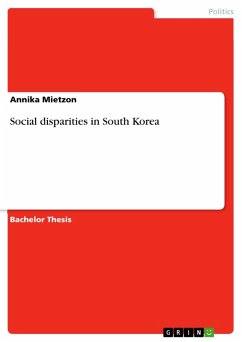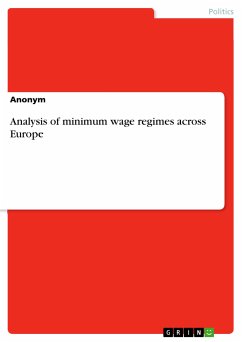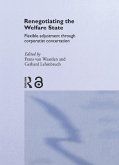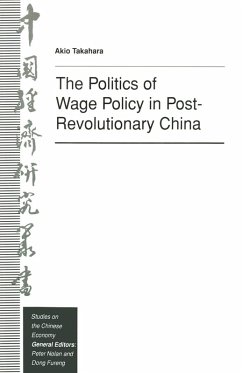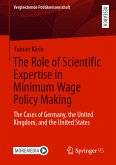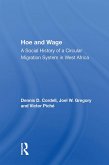Bachelor Thesis from the year 2016 in the subject Politics - Region: South Asia, grade: 1,2, Ruhr-University of Bochum, language: English, abstract: Over the last six decades, the Republic of Korea experienced rapid economic and social development. Korea was able to ascend from the destruction of the Korean War and grow to the 15th largest economy in 2009 in Gross domestic products (GDP) terms. Especially, the introduction of heavy and chemical industries (HCI) in the beginning of the 1970s influenced economic growth and social development strongly. While the living standards during the 1950s were similar to the standards in the poorest countries today, today Korea is one of the leading industries worldwide. However, the mid-1990s were a turning point for inequality trends in Korea, caused by certain events like the Asian Financial Crisis (AFC) and the change of political power in 1997. This thesis analyzes and discusses the changes in inequality trends since the beginning of the 1990s until now. The focus lies on income inequality trends, the sources, and whether and to which extent it affects education inequality. First, the theoretical framework is defined and explained. This thesis concentrates on interpreting income inequality by using mainly the GINI coefficient and income deciles. The methodology of income measures are elaborately described. The following chapter focuses on the Great Gatsby curve and social mobility. For this thesis, vertical intergenerational mobility is a matter of special importance, therefore, the paper unfolds the relationship between education and intergenerational mobility. The third chapter, covers the main part of this thesis and starts with a general overview over the development in social structures since the 1980s. This section deals with the GDP growth rate trends, Korea's decreasing fertility rates as well as labor market polarization and briefly identifies the reasons. Further consequences arising from e.g. a polarization of the labor market are addressed in the following chapter. It analyzes income inequality in general as well as in detail by focusing on GINI coefficients, decile ratios, and the trend of share of households. Furthermore, it explains the sources behind an increasing income inequality, especially, regarding wage trends. The last section describes education trends during the last couple of years by analyzing expenditure and participation rates for private tutoring. It also briefly analyzes the contribution of education to intergenerational mobility and tries to answer whether income inequality leads to disadvantages among students.
Dieser Download kann aus rechtlichen Gründen nur mit Rechnungsadresse in A, B, BG, CY, CZ, D, DK, EW, E, FIN, F, GR, HR, H, IRL, I, LT, L, LR, M, NL, PL, P, R, S, SLO, SK ausgeliefert werden.

